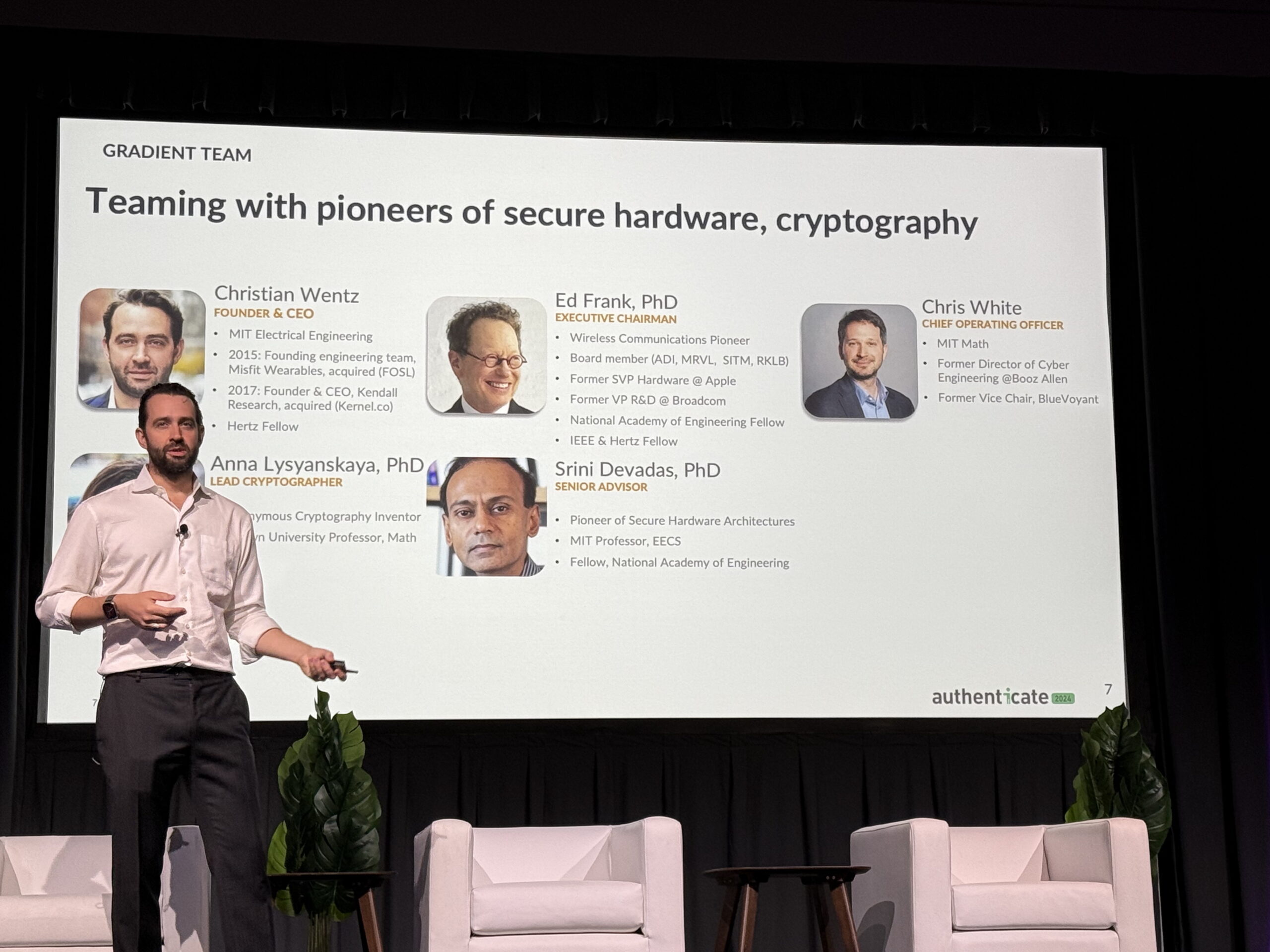THE CHALLENGE
Cybercrime is a perpetual problem. Every time security professionals put up a wall to block attackers, they figure out a way around it in a perpetual game of cat and mouse.
That’s especially true when it comes to usernames and passwords. Even tactics like using strong and unique passwords that change often, and requiring multifactor authentication, can’t entirely stop these kinds of credential-based cyberattacks.
THE PATH
Hertz Fellow Christian Wentz has come up with a solution: getting rid of credentials altogether.
Gradient (the third company Wentz has founded) developed technology that redefines how users and devices are authenticated, and how data is securely shared. Hertz Fellow Ed Frank serves as Gradient’s executive chair.
Using a system of secret keys derived from the user and their devices — keys that regularly change without ever being exposed to humans — Gradient’s technology continually verifies a user’s or a machine’s identity. This eliminates the need for passwords, multi-factor authentication and repeated logins when sessions time out.

THE IMPACT
Gradient has created an entirely new way of looking at cybersecurity by taking away the keys to the kingdom that hackers try to grab. If there are no credentials to steal, credential-based cyberattacks become moot.
“To use a COVID analogy, current cybersecurity technologies are like wearing masks — they’re helpful, but they don’t eliminate the virus,” said Wentz. “Our technology is the equivalent of building a vaccine that eliminates the threat by preventing the virus from binding to the cell. Instead of dedicating compromise faster, we’re making compromises impossible.”
“We’re making compromises impossible.”
Christian Wentz
Founder & CEO, Gradient










